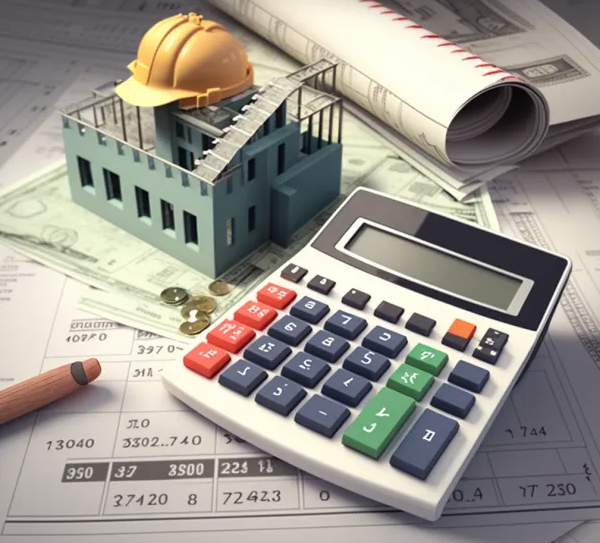Ideas for Estimating Construction Costs

When planning a construction project, it can be difficult to determine the total cost of the project. Estimating construction costs often involves time-consuming research and collecting multiple cost estimates from different sources. This process can lead to costly errors and unexpected expenses if not done properly.
Here, we will discuss some ideas for estimating construction costs to help you manage your budget and plan the project with confidence. With the right strategies of Florida Estimate, you can be sure to get accurate estimates and prepare for any unexpected costs that may arise. We’ll also look at tips for controlling overall spending on a construction project.
Unraveling the Mysteries of Construction Cost Estimation:
Many ideas and techniques can be used when it comes to estimating construction costs. Some of these include:
Research Local Building Costs:
The first step in estimating construction costs is to research local building costs. By researching the cost of materials and labor in your area, you can get a better understanding of what it will cost to build your project. It is important to remember that building costs can vary significantly from one region to another, so it is essential to research local building costs before making any estimates.
Calculate the Square Footage:
Once you have an idea of the local building costs, you will need to calculate the square footage of the project. This will help you determine how much material you will need and how much labor will be required for the job. You should also factor in any additional features that may increase the cost of construction, such as decks or patios.
Estimate Materials Costs:
Once you have calculated the square footage of your project, you can begin estimating materials costs. This includes everything from lumber and drywall to paint and fixtures. It is important to keep in mind that some materials may be more expensive than others depending on their quality or brand name, so make sure to factor these details into your estimates.
Estimate Labor Costs:
In addition to materials costs, you will also need to estimate labor costs for your project. This includes both skilled and unskilled labor, such as carpenters and general laborers respectively. You should also consider whether or not subcontractors are necessary for certain aspects of the job and include those costs in your estimate as well.
Consider Additional Expenses:
When estimating construction costs, it is important to consider all additional expenses that may arise during the project. These could include permits, inspections, insurance coverage, and other miscellaneous fees that may be required by local authorities or contractors before work can begin on a project site. Make sure these expenses are accounted for in your estimates as well so there are no surprises down the line!
Factor In Contingencies:
It is always wise to factor in contingencies when estimating construction costs as unexpected issues can arise during any type of project that could increase its overall cost significantly if not accounted for beforehand. Contingency funds should cover anything from the additional time needed due to unforeseen delays or extra supplies needed due to unanticipated problems with existing ones already purchased for a job site.
Get Multiple Quotes:
Getting multiple quotes from different contractors or suppliers can help ensure that you are getting a fair price for your construction project and save money in the long run by avoiding overpaying for services or materials that could be obtained cheaper elsewhere.
Keep Accurate Records:
Finally, it is important to keep accurate records throughout every step of a construction project so that all parties involved have access to relevant information regarding its progress and associated expenses incurred along the way.
What Key Factors Affect The Construction Estimating Cost?
There are a few key factors that can affect the cost of construction estimating. These include:
Location:
Location is one of the most important factors that affect the cost of construction estimating. The cost of labor and materials can vary significantly depending on where the project is located. For example, labor costs in urban areas may be higher than those in rural areas due to a higher demand for skilled workers. Additionally, the cost of materials such as lumber and steel can also vary depending on where they are purchased from.
Size of Project:
The size of the project is another key factor that affects the cost of construction estimating. Generally speaking, larger projects will require more resources and take longer to complete, which can increase the overall cost of the project. Additionally, larger projects may require specialized equipment or additional personnel to complete, which can also add to the overall cost.
Type of Material Used:
The type of material used for a construction project can also have an impact on its estimated cost. Certain materials such as steel or concrete may be more expensive than others such as wood or brick. Additionally, certain materials may be more difficult to work with or require additional steps during installation, which could add to the overall cost as well.
Complexity:
The complexity of a construction project can also affect its estimated cost. Projects that involve intricate designs or complex structural elements may require additional time and resources to complete, which could increase their overall cost compared to simpler projects with fewer components. Additionally, projects that involve hazardous materials or specialized techniques may require additional safety measures or training for workers, which could also add to their estimated cost.
Time Frame:
The time frame for completing a construction project can also affect its estimated cost. Projects that need to be completed quickly may require additional resources or personnel to meet deadlines, which could add to their overall cost compared to projects with longer completion timescales. Additionally, if there are delays due to weather conditions or other unforeseen circumstances then this could also lead to an increased estimated cost for the project as well.
Permits & Regulations:
Finally, permits and regulations related to a construction project can also affect its estimated cost significantly. Depending on where a project is located, certain permits may need to be obtained before work begins, while specific regulations must be followed throughout. These costs should always be taken into consideration when calculating an estimate for a construction project.
Conclusion:
Estimating construction costs does not have to be a difficult or overwhelming task, with the right techniques and strategies in hand, any project can be accurately priced. Although there are several different methods and ideas for estimating construction costs, three of the most important points to consider are labor costs, material costs, and the efficiency of processes on site. Taking into account factors such as relationships, immediate needs, long-term plans, and expected inflation can also help strengthen an accurate estimate.




